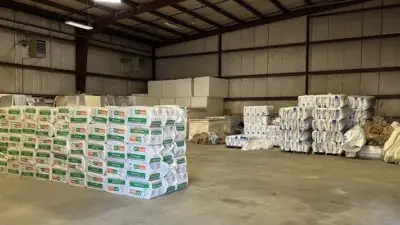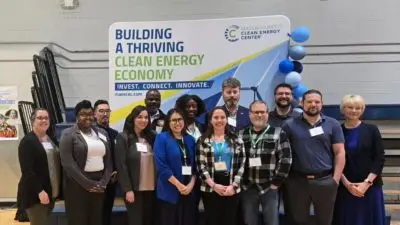Have you been following the news this week about Mass Save’s new 3-year plan and the order that came on Monday from the Department of Public Utilities (DPU)? There have been some important conversations taking place regarding the Mass Save® program and which incentives will continue to be offered to Massachusetts residents like you.
One of the criticisms regarding the newly proposed rewrite from the DPU is that some fossil fuel incentives were retained for HVAC systems. An earlier draft submitted by Mass Save recommended that fossil fuel incentives be ended to continue the push for electrification (heat pumps!) and move toward a net-zero 2050.
So, what exactly are fossil fuels and why did the original 3-year plan ask for their removal?
As the name suggests, fossil fuels are formed from decomposed animals and plants, and are found underground in the Earth’s crust in layers of sediment and rock. Fossil fuels have been used for more than 150 years1 but they took millions of years to form.
Examples of fossil fuels include coal, oil, and gas, which are all nonrenewable resources, meaning that they exist in a limited supply and will eventually run out.
Statistics about fossil fuels
- 81% of the energy used in the U.S. comes from coal, oil, and natural gas2
- Fossil fuels are responsible for about 75% of the emissions from human activities during the past 20 years2
- The U.S. uses more oil than any other country in the world4
- 1 in 5 deaths globally can be attributed to air pollution from fossil fuels5
- In 2018, 8.7 million deaths worldwide were connected to fossil fuel burning5
- In 2020, oil was the biggest source of energy-related carbon emissions in the U.S., followed closely by natural gas1
What are fossil fuels used for?
Fossil fuels are used for a variety of activities such as conditioning our homes, powering transportation, generating electricity, developing consumer products, and more.
At HomeWorks Energy, we know that clean energy is the future which is why we focus on helping Massachusetts homeowners and renters make their homes more energy efficient – this includes heating and cooling their homes with technology that is better for the environment than their current fossil fuel-burning systems.
What are the negative aspects of fossil fuels?
There are many negative aspects to utilizing and relying on fossil fuels including health dangers, land degradation, water and air pollution, ocean acidification, and carbon emission production which drives the climate crisis.
According to the Natural Resources Defense Council (NRDC), fossil fuel pollution “kills more people each year than HIV, tuberculosis, and malaria combined.” The development of fossil fuels not only produces carbon emissions, but also puts contaminants like mercury, sulfur dioxide, benzene, formaldehyde, and soot in the air – which are all dangerous to human health.
Beyond the health risks, the process of getting fossil fuels to consumers disrupts ecosystems, displaces wildlife, and destroys landscapes that will never return to their original state. There has even been a history and documentation of acid runoff that negatively impacts natural bodies of water and even contaminates our drinking water.
Did you know that since the start of the Industrial Revolution (think coal-burning), the ocean has become 30% more acidic?6
There are simply not many parts of our world that fossil fuels don’t touch in a negative, harmful, or deadly way.
What can you do?
One place to start reducing your carbon emissions and fossil fuel usage is right at home. By making your home more energy efficient (and therefore conserving energy), you are reducing your own impact on the environment and community.
For tips about making your home more energy efficient, check out these articles:
12 Winter Energy-Saving Tips That Take Less Than 5 Minutes
8 Ways to Make Your Kitchen More Energy Efficient
How to Save Money at Home with 4 Popular Appliances
5 Energy Efficiency Upgrades That Will Pay for Themselves
At HomeWorks Energy, it’s our mission to help Massachusetts neighbors navigate home energy efficiency and we are committed to leading them through the Mass Save program, helping with access to all the rebates and incentives outlined in the new 3-year plan that you’ve seen in the news.
If you want to learn more, sign up for a no-cost Home Energy Assessment here (a perk of the Mass Save program) and you’ll not only learn about how your home consumes and loses energy and what you can do to improve its efficiency, but you also get detailed information about accessing the best rebates in Massachusetts and the biggest incentives that the Mass Save program has ever offered.
Check out this article from the Boston Globe this week about the Mass Save program and Home Energy Assessments that don’t cost anything – we’re proud to be the contractor of choice mentioned!
Together we can make our world cleaner and move toward a future without fossil fuels, starting right at home.
Resources
Environmental & Energy Study Institute
National Geographic
National Geographic
National Geographic
- https://www.nationalgeographic.org/encyclopedia/distribution-fossil-fuels/?utm_source=BibblioRCM_Row
Natural Resources Defense Council
Natural Resources Defense Council








